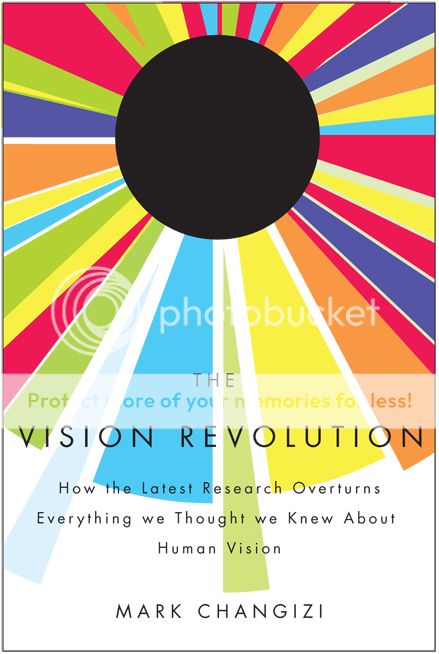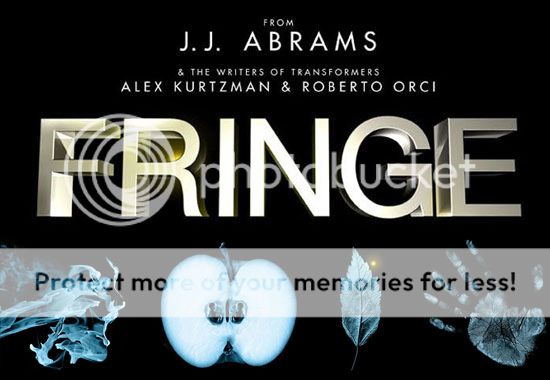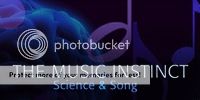Guest Article: The Idea-Monger: No Genius Required by Mark Changizi (Podcast)
May4

The Vision Revolution by Mark Changizi. ©2010 BenBella Books, all rights reserved
Dr. Mark Changizi, a cognitive science researcher, and professor at Rensselaer Polytechnic Institute, is one of the most exciting rising stars of science writing and the neurobiology of popular culture phenomena. His latest book, The Vision Revolution, expounds on the evolution and nuances of the human eye—a meticulously designed, highly precise technological marvel that allows us to have superhuman powers. You heard me right; superhuman! X-ray vision, color telepathy, spirit reading, and even seeing into the future. Dr. Changizi spoke about these ideas, and how they might be applied to everything from sports stars with great hand-eye coordination to modern reading and typeface design with us in ScriptPhD.com’s inaugural audio podcast. He also provides an exclusive teaser for his next book with a guest post on the surprising mindset that makes for creative people. Read Dr. Changizi’s guest post and listen to the podcast under the “continue reading” cut.
Love is a Many-Splendered Algorithm
Feb2

You spot someone across a crowded room. There is eye contact. Your heart beats a little faster, palms are sweaty, you’re light-headed, and your suddenly-squeamish stomach has dropped to your knees. You’re either suffering from an onset of food poisoning or you’re in love. But what does that mean, scientifically, to fall in love, to be in love, to stay in love? In our special Valentine’s Day post, Editor Jovana Grbić expounds on the neuronal and biophysical markers of love, how psychologists and mathematicians have harnessed (and sometimes manipulated) this information to foster 21st Century digital-style romance, and concludes with a personal reflection on what love really means in the face of all of this science. You might just be surprised. So, Cupid, draw back your sword… and click “continue reading” for more!
Video: ScriptPhD Interviews the Science Advisor of ‘Fringe’
Feb0

Fringe images ©2008 FOX Broadcasting Corporation, all rights reserved.
ScriptPhD.com’s coverage of Comic-Con 2009 included an interesting panel entitled Mad Science: The Science Behind Science Fiction, which consisted of a panel of top science fiction shows Eureka, Battlestar Galactica, Eureka, Caprica and Fringe. There, we met Dr. Ricardo Gil da Costa, a neurobiologist who is one of the official science advisors to the writers of Fringe. We recently had the opportunity to visit Dr. Gil da Costa on location in his laboratory at the Salk Institute for Biological Studies in San Diego, CA. We sat down to talk about his science, what it’s like to be “on-call” for one of the biggest hit shows on television, how the writers use his knowledge and integrate it into the show, and more broadly, how creatives in the entertainment industry can best utilize the skills of research scientists as they integrate more sophisticated material into their scripts. To watch the video, please click “continue reading.”
This is Your Brain on Music
Nov0

The Human Instinct image ©2009 PBS, all rights reserved.
Music. We all know what it sounds like when we hear it. It has the ability to create powerful emotions, or bring back memories from the distant past in our lives. We may use it when we exercise, study for exams, read, or for traveling form point A to point B. But what is music? Is it unique to human beings? How do we interpret music when we hear it? Are the emotions created by music universal, irrespective of the listener’s culture and country of origin? Can music teach us anything about how the human brain functions? These interesting questions and more are explored in the fascinating documentary The Music Instinct: Science and Song, a PBS production that was recently honored with the top prize at the prestigious annual Pariscience International Science Film Festival. ScriptPhD.com’s newest regular contributor NeuroScribe provides his review and discussion under the “continue reading” jump.

















